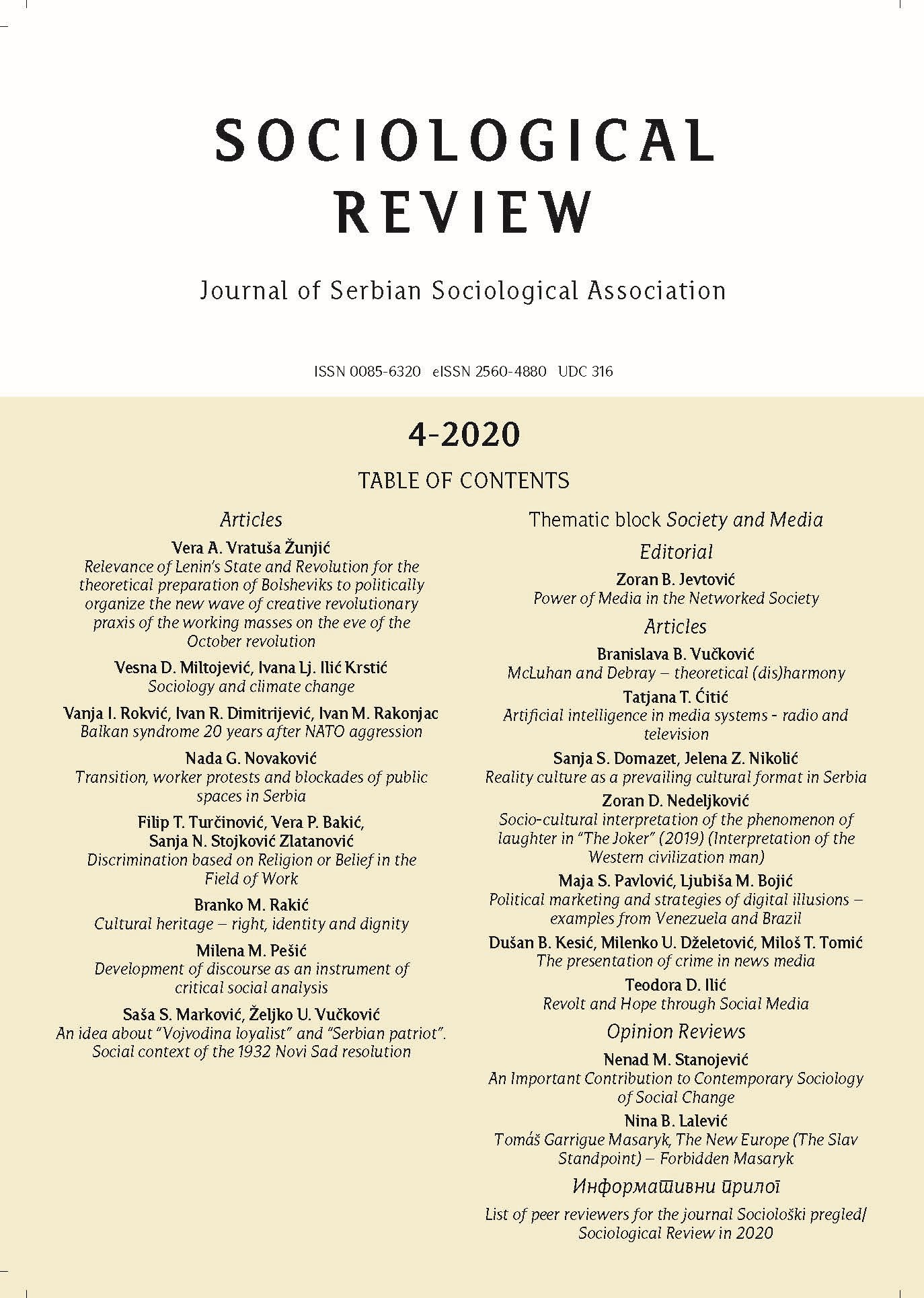Transition, worker protests and blockades of public spaces in Serbia
Transition, worker protests and blockades of public spaces in Serbia
Author(s): Nada G. NovakovićSubject(s): Social Sciences, Sociology, Social development, Social differentiation, Economic development, Sociology of Politics
Published by: Српско социолошко друштво
Keywords: workers’ protests;blockades;privatization;transition;exploitation;
Summary/Abstract: The subject of this paper has been workers’ protests and blockades of public spaces in Serbia over the last 20 years. Their most important causes and reasons, organization and efficiency are sociologically analyzed, described and explained. They were happening in “waves”. The first started with the acceleration of privatization (2004 and 2005), the second with its deepening (2009 and 2010), and the third coincided with the end of privatization and the intensification of the global economic crisis (2014–2019). The main hypothesis is that workers’ protests and blockades are systematically determined. The most important is the nature of the social system, i.e. the applied concept of transition and privatization. Individual and local factors (causes) are less significant. Workers’ protests and blockades are less effective at the end than at the beginning of accelerated transition and privatization.
Journal: Социолошки преглед
- Issue Year: 54/2020
- Issue No: 4
- Page Range: 1152-1182
- Page Count: 31
- Language: English, Serbian

